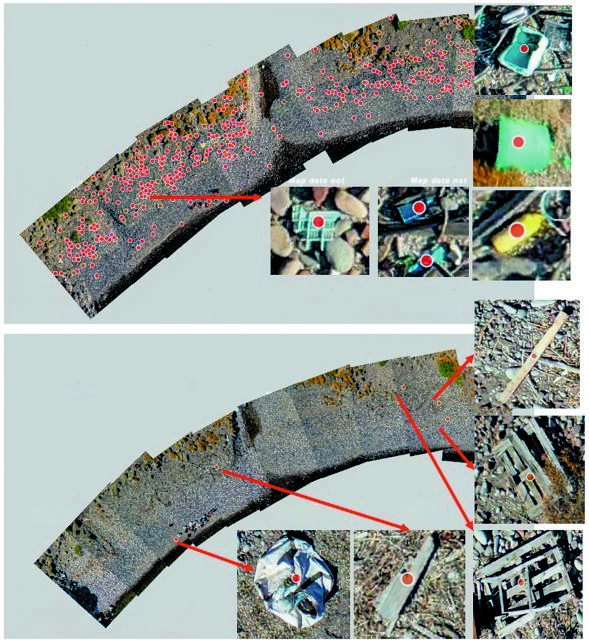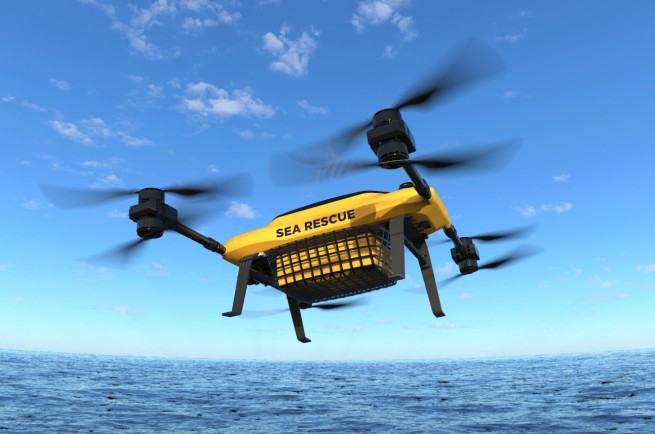Greek company SciDrones uses unmanned aerial systems that use artificial intelligence to detect pollution on beaches.
The drone takes off and begins detecting trash, scanning the coastline, and mapping plastic pollution on beaches—from a small bottle cap to large pieces of trash like car tires. The data is then processed using artificial intelligence to monitor coastal cleanup.
The app classifies litter into seven different categories and distinguishes it from other sources of natural litter, such as algae or twigs, and creates maps of areas with high litter densities.
Europe produces almost 26 million tons of plastic waste every year, and about 80% of marine debris is plastic. The presence of litter in the sea is recognized as a serious environmental problem, as it can seriously affect flora and fauna, and have serious economic consequences for coastal villages/cities, as well as tourism and fisheries in general.
A country like Greece, which has the longest coastline in Europe at 13,676 kilometers, ranks 11th in the world among countries where coastal pollution is considered a serious problem.

Using an innovative combination of Copernicus data with high-resolution drone imagery and advanced artificial intelligence algorithms, the company developed the CMLO (Coastal Marine Litter Observatory) app, which practically detects litter on the shore automatically.
The app classifies waste and distinguishes it from other sources of natural waste. “At the same time, it makes it possible to extract statistical data that helps to see changes in pollution in a certain area,” says Konstantinos Topouzelis, assistant professor in the Department of Oceanography and Marine Life Sciences at Aegean University, director of the marine remote sensing group and co-founder of SciDrones. And the trump card of the application is that marine debris can be registered even in hard-to-reach areas.
The Greek app has already been tested on more than 80 kilometers of Greek coastline and has also spread abroad to countries such as Japan, Ghana, Israel and Portugal.







More Stories
D. Sariyannis: “We expect African dust in mid-May”
Dust from the Sahara: first results of analysis of chemical components
Lyrid meteor shower, make a wish on a shooting star